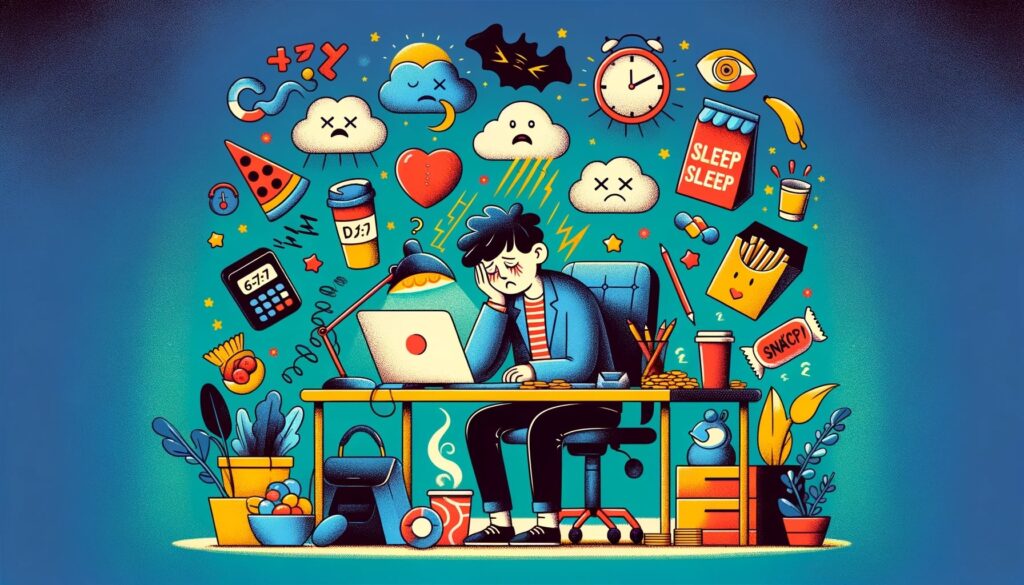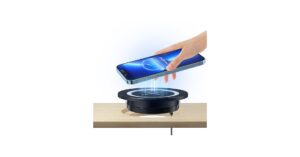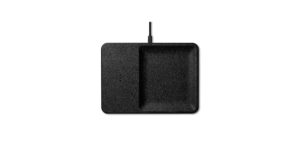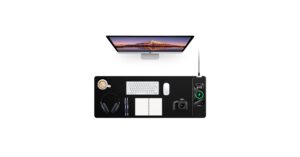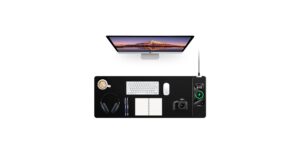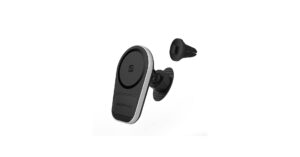The Snooze Epidemic: Why It’s Happening
Ever caught yourself almost head-butting your keyboard midday? It’s not just you. A staggering 43% of Americans struggle with being too tired at work. The culprits? Well, it’s a mix of stuff – from not catching enough Zs to health issues.
Key Reasons You’re Dozing Off:
- Sleep Disorders: Like narcolepsy or sleep apnea.
- Sleep Deprivation: Not enough sleep means sleepy days.
- Poor Health: If your body’s not happy, it wants more rest.
The Science Behind Desk Naps
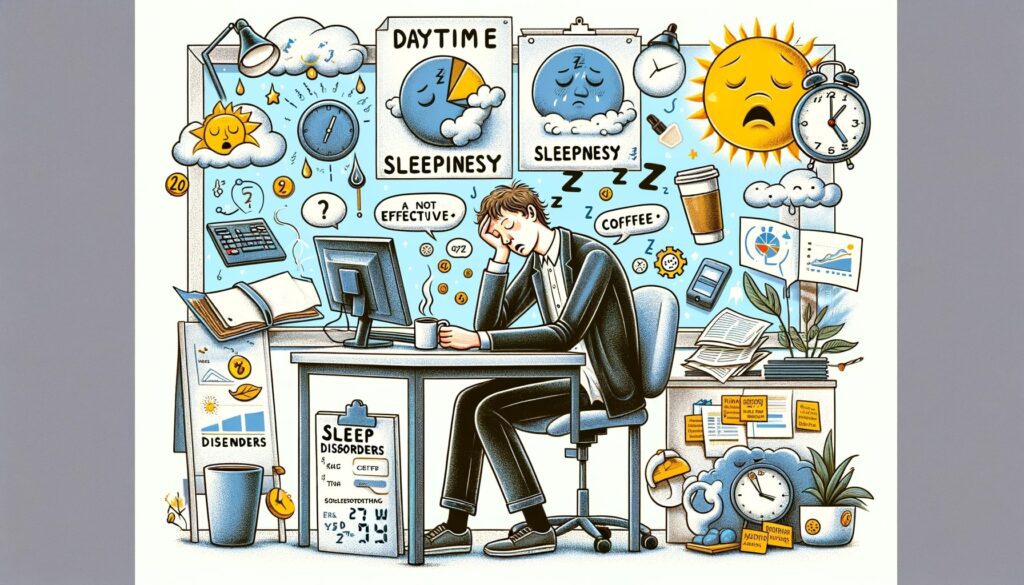
Alright, let’s dive into the nitty-gritty. There are a few science-backed reasons why your desk turns into a snooze station.
Sleep Disorders: More Common Than You Think
Narcolepsy and sleep apnea can hijack your ability to stay awake. Narcolepsy is about brain signals messing up, causing unexpected sleep attacks. Sleep apnea, on the other hand, is about breathing interruptions during sleep, leading to poor rest.
Your Sleep Debt: Paying the Price
Not getting your recommended 7+ hours of sleep piles up a ‘sleep debt’. This debt needs to be paid, and unfortunately, it often cashes out while you’re at your desk.
Dehydration: The Sneaky Energy Drainer
Bet you didn’t know that about 60% of your body is water. Not drinking enough means your brain, which is 73% water, starts slacking off. Swap those sodas for water to keep your brain hydrated and happy.
Exercise: Your Secret Energy Booster
Here’s a fun fact: regular exercise amps up your mitochondria (energy factories) and floods you with endorphins (feel-good hormones). More exercise equals more energy and fewer unplanned desk naps.
Power Naps: A Genius Move
Ever heard of a power nap? It’s a quick 20-minute recharge that can seriously boost your brainpower. Fun fact: history’s geniuses loved this trick.
Tips to Stay Awake: Your Anti-Snooze Arsenal
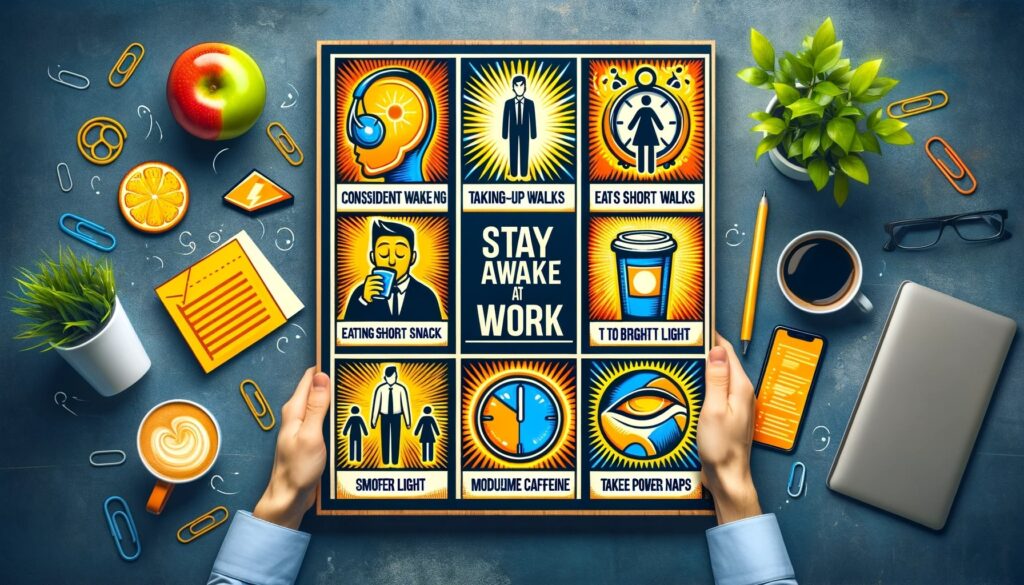
Ever feel like your desk is a magnet for your sleepy head? You’re not alone. One in four people struggle with daytime drowsiness, affecting their work and daily activities. Here’s a fun, human guide to keeping those peepers open:
1. Shake Up Your Wake-Up Routine
- Consistency is Key: Wake up at the same time daily, even on weekends.
- Sunlight Splash: Get some sun as soon as you wake up. No sun? Light therapy works too!
2. Walk it Off
- Endorphin Boost: A quick stroll releases endorphins, raising your energy levels.
- Sustained Energy: A little walk can keep you perky for over two hours!
3. Snack Smart
- Balance is Best: Go for a mix of protein and veggies.
- Water Wins: Keep hydrated to fight off tiredness.
4. Let There Be Light
5. Caffeine Kick
- Smart Sipping: Coffee or tea can block sleepy chemicals in your brain.
- Timing is Everything: Avoid caffeine 8 hours before bed.
6. Power Nap Like a Pro
Anti-Snooze Arsenal: A Quick Table
| Tip | What to Do | Why It Works |
|---|---|---|
| Wake-Up Routine | Consistent wake-up time, sunlight | Sets internal clock, boosts alertness |
| Walk | Short, brisk walks | Releases energy-boosting endorphins |
| Healthy Snack | Protein, vegetables, plenty of water | Balances blood sugar, hydrates |
| Light | Exposure to bright light | Aligns circadian rhythm |
| Caffeine | Moderate intake | Blocks sleep-inducing chemicals in the brain |
| Power Nap | 20-minute naps | Refreshes and revitalizes |
Wrapping It Up: Wakeful Workdays Ahead!
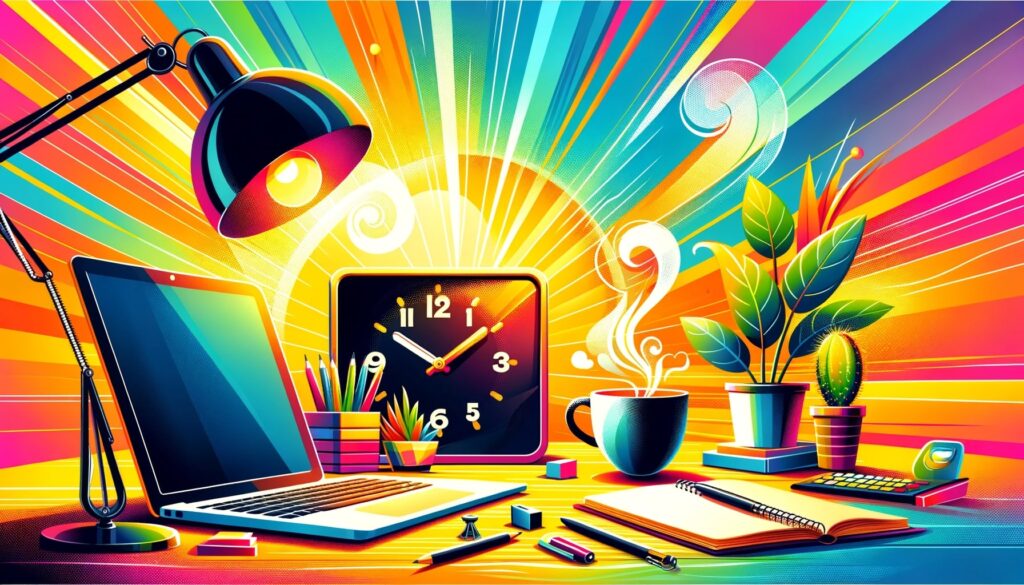
In conclusion, falling asleep at your desk isn’t just about boredom. It’s a complex dance of health, habits, and lifestyle. By tackling these factors, you can keep your eyes open and your mind sharp throughout your workday.
Dive Deeper Into Related Topics:
- Office Plants for Better Air and Focus
- Optimizing Desk Direction for Productivity
- Desk Setups for the Ultimate Work From Home Experience
Say goodbye to desk naps and hello to a perkier, more alert you! 🌟
